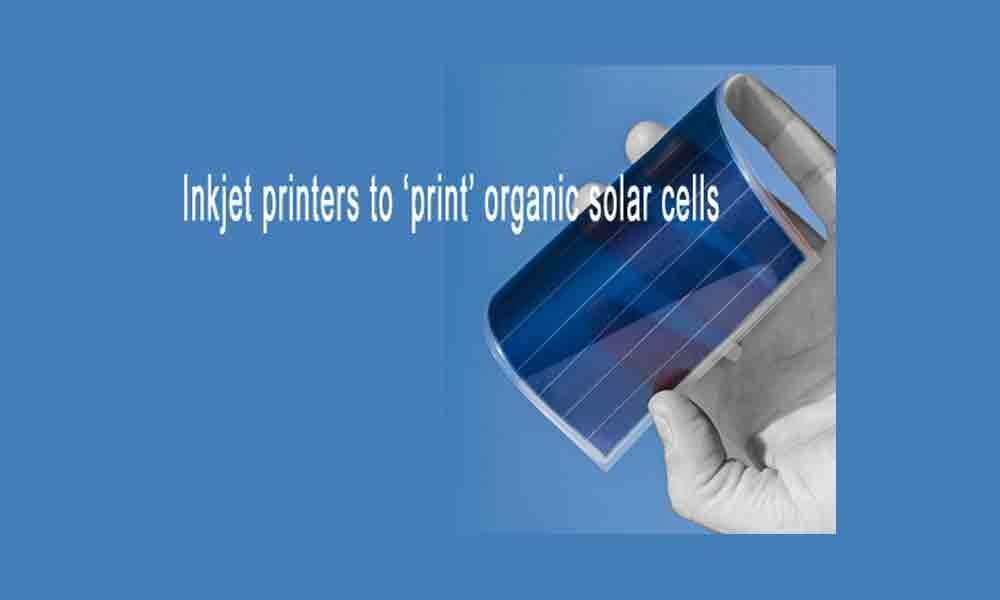Live
- State cabinet meeting in MM Hills on February 15
- Gold rates in Vijayawada today surges check the rates on 10 January, 2025
- Man held for Rs 10.32 lakh cyber fraud
- Several VIPs Flock to Tirumala amid Vaikuntha Ekadashi
- Rising number of mortalities of infants in Yadagiri causes concern
- Jeans park to be set up in Ballari: 154 acres acquired, says MB Patil
- Veena concert captivates audience
- Nadendla lauds RTGS, confident of tech potential to change governance
- Pawan Kalyan to Launch Development Programs in Pithapuram on Friday
- BJP expresses condolence over death of 6 devotees
Just In

Scientists have printed highly efficient organic solar cells using inkjet printing, that could pave the way for disposable electronics.
Scientists have printed highly efficient organic solar cells using inkjet printing, that could pave the way for disposable electronics.
Organic photovoltaic materials could soon replace inorganic semiconductors in solar-powered devices because of their lightness, flexibility and low cost. These materials are easy to modify and process in solution, which makes them highly attractive for customisation and large-scale production.
In particular, customised solar cell designs can be used in conjunction with other printed electronics to power a plethora of applications, such as disposable electronics, intelligent packaging, interactive printed media and lab-on-a-chip devices. Researchers from the King Abdullah University of Science & Technology (KAUST) in Saudi Arabia have engineered inkjet-printable solar materials containing a nonfullerene acceptor and deposited these inks over large areas to produce photovoltaic cells.
The resulting devices achieved efficiencies of six per cent, which is comparable to the efficiencies of their spin-coated analogues. PhD candidate Daniel Corzo said that inkjet printing presents several advantages over traditional spin-coating and blade-coating deposition techniques, including low material consumption and rapid design changes through digital platforms. "This enables low-cost manufacturing, patterning into complex shapes, and multilayered device fabrication without the need for multistep lithography," said Corzo.
The researchers optimised the printing process by tuning the viscosity and evaporation behaviour of the ink to improve both how the droplets were ejected and how they interacted with the substrate surface. According to Corzo, this optimisation has provided a repeatable and commercially scalable process. The team also fabricated high-efficiency turtle-shaped devices, demonstrating the potential for the process to be customised.
"It is amazing that we can now fabricate solar cells with complex shapes at the push of a button, opening the door to a wide variety of applications," Corzo said. The researchers are currently developing fully printed organic solar cells and enhancing cell efficiency using higher-performance materials. They are also investigating ways to integrate the devices in modules and with other printed electronics for self-powered autonomous sensing.

© 2025 Hyderabad Media House Limited/The Hans India. All rights reserved. Powered by hocalwire.com







